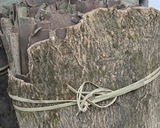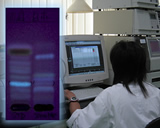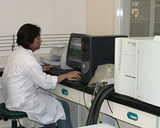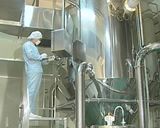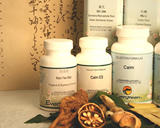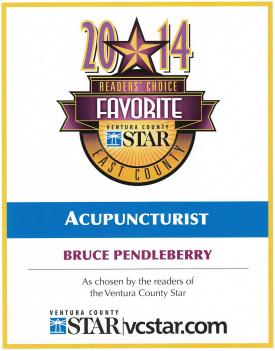Below are the herb companies I use and their quality control and Manufacturing processes they go through to insure your safety.
Evergreen Herbs www.evherbs.com
Quality Control and Manufacturing Process
| Organoleptic Visual Check | Pass | |
| Microscopic Cellular Identity Check | Pass | |
| TLC Active Ingredient Check | Pass | |
| HPLC Potency Level Test | Pass | |
| Total Heavy Metal Test | Pass | |
| Total Bacterial Count Test | Pass | |
| Total Yeast and Mold Test | Pass | |
| E.coli Test | Pass | |
| Salmonella Test | Pass | |
| Staphylococcus aureus Test | Pass | |
| Loss on Drying Test | Pass | |
| Total Ash Content Test | Pass | |
| Acid-Insoluble Ash Test | Pass | |
| Dil. EtOH Extract Test | Pass | |
| Individual Heavy Metal Tests*
(Lead, Cadmium, Mercury, Arsenic) |
Pass | |
| Pesticide Test*
(Organochlorine and Organophosphorus) (over 100 pesticides tested) |
Pass | |
| Aflatoxin Test* | Pass | |
| Ochratoxin Test* | Pass | |
| Aristolochic Acid Test* | Pass | |
| Aconitine Test* | Pass | |
*These tests are performed on herbs when applicable.
Repeated testing ensures that we deliver the safest, highest quality products to you. On average, our herbs must pass 15 tests before reaching you.
“Seed to Shelf” Consciousness, promoted by
Dr. David Eisenberg of Harvard University, is an approach to tracking herbs and maintaining accountability from the origin as seeds, through planting, maturation, harvesting, processing, and testing, until the herbs are delivered to you. Evergreen Herbs employs the following safety processes and checks to assure safety, quality, and ultimately, clinical efficacy. These processes and commitments are why Evergreen Herbs are good for you and why medical professionals choose Evergreen.
Good Agricultural Practices (GAP) Raw Material
Quality products begin with premium raw material. We seek out growers who routinely test both the soil and water for quality and freedom from contamination. We select whole, medicinal-grade herbs with abundant phyto-nutrients and medicinal potency. By supporting farmers that follow Good Agricultural Practices (GAP), we help to ensure sustainable farming of high quality Chinese herbs.
Geo-Authentic Selection
We take geo-authenticity seriously. This means we obtain herbs that are indigenous to a specific region, and when grown there will yield the best medicinal results. For example, Chuan Bei Mu(Bulbus Fritillariae) should be grown in the Sichuan province for the best results, as the soil and climate of Sichuan produce the highest development of its therapeutic components. In addition, we select the appropriate therapeutic portion(s) of the plant and pay careful attention to the method and timing of harvesting, in order to maximize and preserve their
effectiveness.
Herb Identification
Electron microscopy to examine the cellular structure of the herb to ensure authenticity and quality
Our senior herbalist, qualified to perform organoleptic identification, starts the process of confirming the authenticity of the herbs via taste and visual comparison. Criteria such as correct color, freshness, and appearance are taken into consideration in selection of the best raw material.
Because many herbs look and taste similar, we further ensure authenticity by using electron microscopy to examine the cellular structure of the herb. The cellular structure of each herb is unique, much like a fingerprint. While many companies do not take this extra step, sometimes meaning that inappropriate substitute herbs and substandard subspecies are brought to market, this is one test that we at Evergreen consider absolutely necessary to verify and ensure authenticity and quality.
Advanced Testing to Ensure Quality and Safety
Thin Layer Chromatography (TLC) identifies the unique component make up of an herb while High Performance Liquid Chromatography (HPLC) ensures that the bio-active constituents are present in proper concentration
After visual inspection, laboratory tests are performed to detect what cannot be seen or tasted. Evergreen uses Thin Layer Chromatography (TLC) to identify the unique component makeup of an herb to further guarantee its authenticity, and High Performance Liquid Chromatography (HPLC) to ensure that the bio-active constituents are present in proper concentration. Together, the TLC and HPLC guarantee accuracy in species and maximum deliverance of active ingredients in our herbs.
Protection Against Heavy Metals
After ensuring authenticity and active ingredients, our herbs are tested for safety. We have increased our standard of quality control by testing for safety against EACH heavy metal (arsenic, cadmium, lead and mercury) – rather than just the total heavy metal amount.* Most suppliers test only the total heavy metal amount, which means variance in one heavy metal above its individual limit may be offset by a low count in another. Total heavy metal count can be up to as high as 200 ppm (parts per million) in some companies. Though taking on this difficult task means rejecting many batches of herbs that do not meet the Evergreen standards, we believe it is still necessary in order to deliver the absolute purest herbs to you and your patients.
Our heavy metal tests are performed using scientifically validated methods, in accordance to the US Pharmacopoeia and the World Health Organization (WHO) standards.
*See Lab Test chart for detail
Non-Detectable Pesticides
Pesticide testing for over 100 different kinds of organochlorine and organophosphorus compounds for at risk-herbs
Evergreen herbs are safe from pollutants, insecticides, fungicides, herbicides, and pesticides. Our on-site lab and independent labs test at-risk herbs for a total of over 100 different types of organochlorine and organophosphorus compounds.
Safety Against Bacteria
Microbial tests for E.coli, Staphylococcus, Salmonella, Enterobacteriaceae, mold and yeast to ensure you receive the safest product on the market today.
We insist on microbial tests following the guidelines of the US Pharmacopoeia. Scientists in our full-scale microbiology lab test our herbs for Escherichia coli, Staphylococcus aureus, Salmonella spp., Enterobacteriaceae, and other gram negative bacterium; for total bacteria count, and for total yeast and mold counts, to ensure you receive the safest product on the market today.
Manufacturing Process
Careful extraction of premium raw material is what makes Evergreen herbs better than the rest. Quality is an integral part of every step in our manufacturing process. Extraction is not a crude process, but a refined art and science that requires oversight by master craftsmen and craftswomen at each stage in every process.
Preparatory Work
We wash our herbs repeatedly and rinse them in fresh running water to remove dirt and other impurities. Each type of herb and all individual pieces of each herb are then processed in particular ways to expose maximum surface area for further processing and to facilitate the highest extraction of active ingredients. For example, seeds are crushed open, and tonic roots are thinly sliced diagonally, prior to whatever is needed next to insure extraction of essential herb components. Like a chef preparing food in a kitchen, the proper preparation before cooking can make the whole dish.
Pre-Extraction Methodology
Our herbs are prepared according to a unique Pre-Extraction Methodology, during which time the herbs may be roasted, baked, stir-fried, or even wine-fried, according to traditional methods to yield the maximum therapeutic effect. Some herbs, like Dang Gui (Radix Angelicae Sinensis), contain key alkaloids that are soluble in alcohol rather than water. In order for these active ingredients to be released, the wine-frying procedure must be performed prior to water extraction, or the therapeutic effect would be compromised. Knowing this and committing to these details are what makes our herbs more effective than others, so that you can see the difference in therapeutic results.
High-Pressure Low-Temperature Extraction and Granulation
Our herbs are extracted in sealed, temperature-controlled, clean rooms. The only water that is used in extraction processes has been softened and purified to high standards. Our herbs are not subjected to heavy metals from tap water, or to industrial solvents such as acetone or hexane, which are used by some manufacturers to extract one specific standardized active ingredient.
Our high-pressure system maximizes extraction of active ingredients, and the low-temperature approach ensures that phyto-nutrients and active compounds are not destroyed by heat–thus yielding a more potent finished product. This principle is much like cooking vegetables. The right temperature and time must be used to retain vital nutrients. If cooked for too long, or over high heat, all the vitamins and healthy ingredients are destroyed.
Finally, one herb at a time, the liquid carrying the extracted ingredients, now in paste consistency, is turned into the final individual granular product under vacuum-dry evaporation and granulation in a totally enclosed chamber to protect against cross contamination from other herbs or from any other potential contaminant. The tracking process that began in the fields with the selection of herbs, continues throughout the many processes, as each batch of granules is sealed and labeled, including lot number tracking information, prior to leaving the manufacturing process.
Conclusion
From “Seed to Shelf,” Evergreen ensures purity, safety and potency in our herbal extracts by following standards and guidelines set forth by the World Health Organization (WHO) and Good Manufacturing Practice (GMP) of the US Food and Drug Administration (FDA).
From “Seed to Shelf,” Evergreen ensures purity, safety, and potency in our herbal extracts by following standards and guidelines set forth by the World Health Organization (WHO) and Good Manufacturing Practice (GMP) of the United States, Japan and Taiwan.
Efforts put forth by our team of experts in chemistry, microbiology, and Chinese medicine result in a Certificate of Analysis (COA), which guarantees that practitioners receive the highest quality product that is safe and effective. We take all the extra steps to bring you the very best herbs. It’s the right way, and the only responsible way to process and produce herbal extracts. We thank you for using Evergreen Herbs and your support of responsible herbal medicine practices.
Note: Evergreen distributes herbal extracts exclusively to healthcare practitioners. These statements have not been evaluated by the FDA. Our products are not intended to prevent, diagnose, treat, or cure any disease.
Blue Poppy Herbs Not only GMP But Also GAP
www.bluepoppy.com
Published on March 31st, 2009 @ 02:40:27 pm , using 388 words, 1103 views
Posted in Bob Flaws’ Blog
by Bob Flaws
Recently, we announced that Blue Poppy Herbs’ factory in China is the first that we know of to be certified U.S. FDA cGMP compliant by an independent standards certification company (NSF). This is a huge step forward in Blue Poppy’s quality assurance program. Now our factory is both China GMP certified and U.S. cGMP compliant. So your patients can rest their minds about the safety of our formulas. However, what most people outside Blue Poppy do not know is that our factory in China also owns a 900-acre herb farm where they produce the mostly commonly used ingredients. This farm is China GAP certified.
What does GAP certification mean? It means Good Agricultural Practices. Specifically what this means is that every step of the planting, growing, and harvesting of these herbs meets stringent quality control standards. This includes the genetic strain of seed, time of planting, pH and other composition of soil, sunlight, amount of water, time of harvest, method of drying or other processing for storage, the use of fertilizers and pesticides (if any), and plant rotation. In other words, these GAPs cover every variable and contingency in the growing and harvesting of these herbs, with every step being recorded and signed for by the responsible workers and checked by managers. Although the Chinese Ministry of Agriculture instituted GAPs for the Chinese herb industry several years ago, few companies have consistent, reliable sources of GAP certified herbs. This is why our factory having its own GAP certified farm is so unique and important.
This farm is located near a National Forest Park in Hunan in a remote, unpolluted area where there are no industrial activities. Besides its superb location, several other factors contribute to the successful growth of the high quality herbs we use. These include abundant sunlight, rainfall, and well-irrigated and excellently drained soil. Our factory’s team of herbalists works very closely with the farmers to oversee all the growing processes of the herbs to insure their high medicinal quality.
And it gets even better. Our factory is currently in the process of transitioning and getting this farm certified organic.
So, if quality is important to you and your patients, Blue Poppy Herbs is the industry leader when it comes to quality control.
Copyright Blue Poppy Ent., Inc., 2009. All rights reserved.
Sun Ten Laboratories
www.sunten.com
Manufacture Credibility
Manufacturing certifications reveal the quality of a manufacturers operation. This includes the quality of the facility, the organization of its operation, its adherence to important procedural steps, the control of quality and safety and how it is implemented and recorded. Each country may have its own standard of excellence and certification. A mark of a globalized facility is often distinguished in the various certifications we acquire from those regions that strictly enforce high standards of quality and safety
|
|
